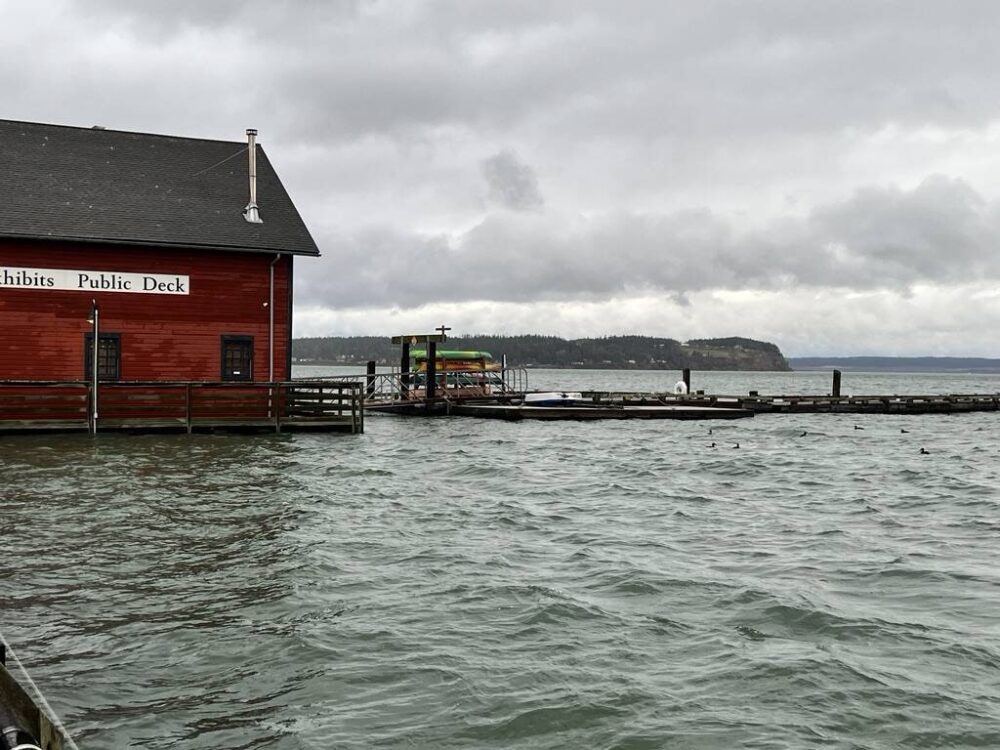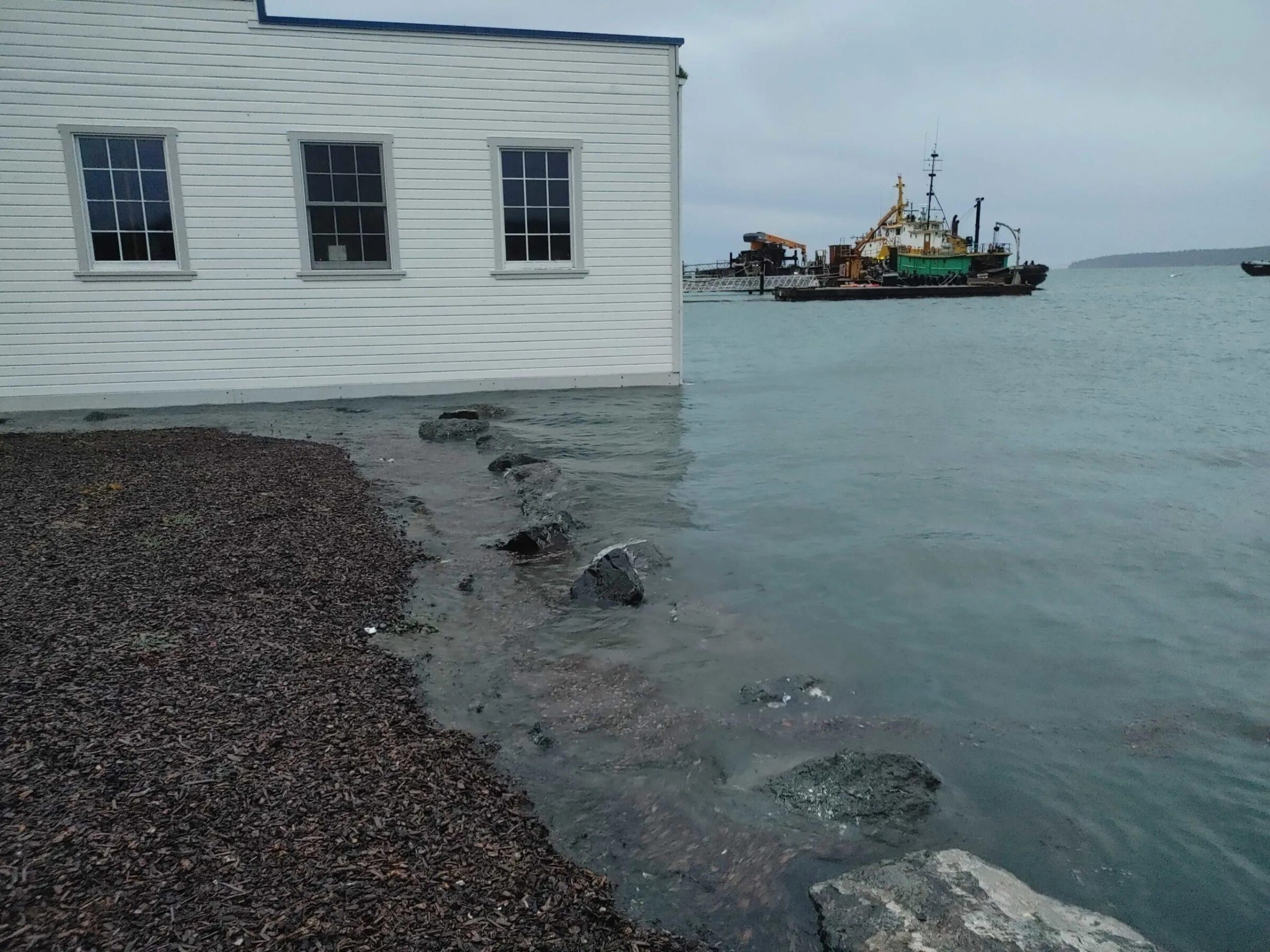Washington Trust Receives Grant to Support Preservation of Historic Buildings Facing Sea Level Rise and Tidal Events

Above: King tides threaten the Coupeville Wharf in December 2022. Photo courtesy of the Whidbey News-Times.
The Washington Trust for Historic Preservation has been awarded a prestigious Paul Bruhn Historic Revitalization Grant from the National Park Service to support preservation projects in communities threatened by sea level rise and king tides.
Named for the late Paul Bruhn, who served as executive director of the Preservation Trust of Vermont for nearly 40 years, the National Park Service’s Paul Bruhn Historic Revitalization Grant Program provides funding to eligible State and Tribal Historic Preservation Offices, Certified Local Governments, special district governments, and nonprofits to create a subgrant program to fund multiple preservation projects in their rural jurisdictions. The program is funded through the Historic Preservation Fund, which uses revenue from federal offshore oil and gas leases to support a broad range of preservation projects without spending tax dollars. On September 10, the National Park Service announced the latest round of grantees, which includes 17 subgrant programs in 15 states, all working to support economic development through the preservation of historic buildings in rural communities across the country.
The Washington Trust is the only West Coast organization in this year’s Paul Bruhn roster. With an award of $750,000, the Washington Trust plans to administer a subgrant program supporting preservation projects for historic buildings threatened by sea level rise and flood events. Eligible applicants must be located in rural coastal communities and may include private and public property owners, government entities (including city, county, port, and Tribal governments), and nonprofit organizations. Projects should concern preservation efforts around buildings that contribute to local historic character and serve an important function in the social and economic fabric of their community, such as contributing buildings in historic districts; museums, theaters, courthouses, and other community spaces; and historic buildings housing local small businesses.
This is not the first time the Washington Trust has worked to highlight the danger to historic structures presented by sea level rise. In May 2024, the Coupeville Wharf was added to the Trust’s Most Endangered Places list, which serves to bring attention and rally public support around threatened buildings, sites, and historic places. The wharf, currently owned and operated by the Port of Coupeville, faces rising sea levels and increasingly frequent king tides that threaten its future stability and viability as a community asset. In July 2024, as part of its annual Youth Heritage Project, the Washington Trust took 36 high school students from across the state to Coupeville to learn about the effects of sea level rise upon the wharf and other local buildings. The Washington Trust has also fielded numerous community concerns regarding the effects of sea level rise upon historic structures through its administration of the Maritime Washington National Heritage Area.
The Washington Trust’s Paul Bruhn subgrant program is expected to launch in 2025. Owners of historic buildings located in coastal communities who may be interested in applying for funding in the future are encouraged to sign up for the Trust’s Preservation Issues & Advocacy Alerts e-newsletter here.

